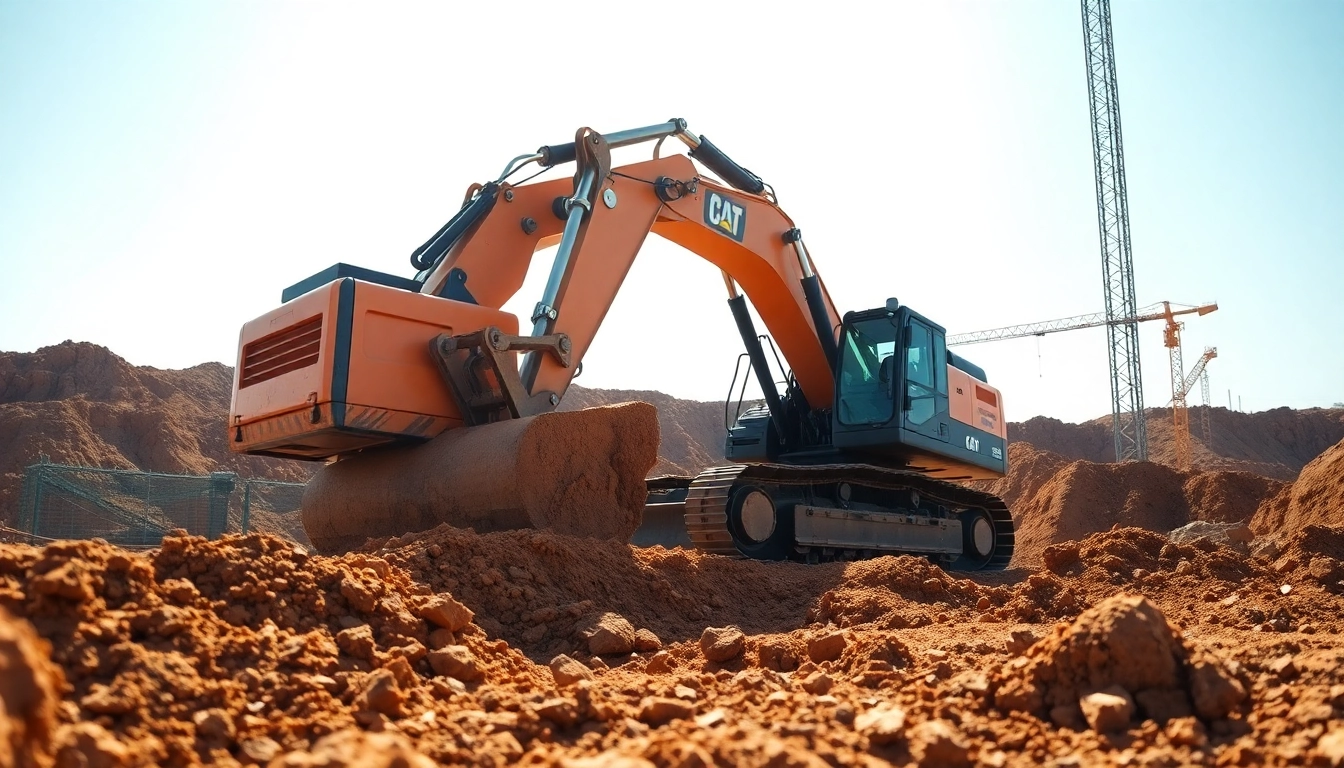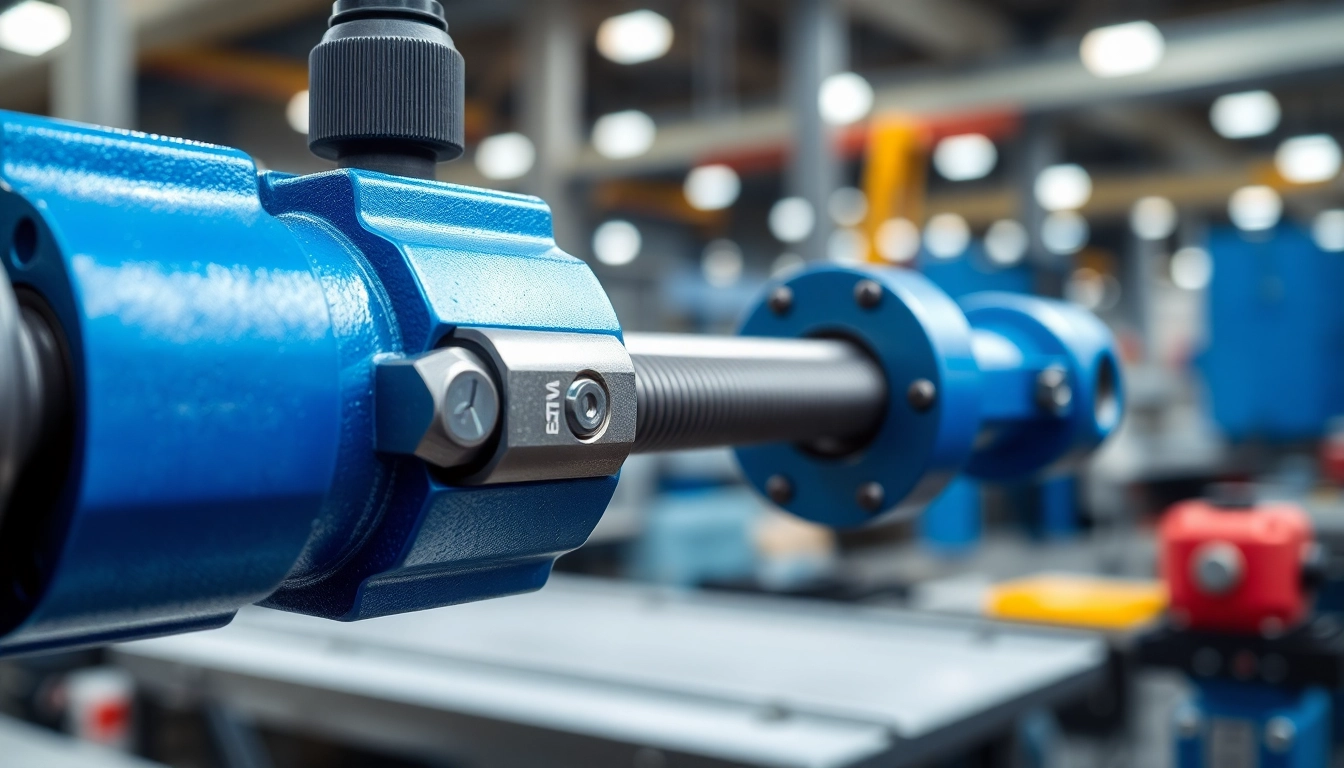Introduction to Excavator Rental: Benefits and Overview
In today’s construction and landscaping industries, excavators are among the most versatile and essential pieces of heavy equipment. Whether undertaking small renovation projects or large-scale infrastructure developments, the need for powerful, reliable machinery is universal. While purchasing an excavator might seem like a straightforward investment, many organizations and individual contractors are discovering the significant advantages of opting for excavator rental instead. Rental options provide flexibility, cost savings, access to the latest technology, and tailored solutions that align precisely with project requirements.
Choosing to rent excavators allows businesses to optimize their operational efficiency without the long-term financial commitment of ownership. This approach also facilitates access to a wide variety of machines designed for different tasks, site conditions, and project scopes. In this comprehensive guide, we will explore the many facets of excavator rental—from understanding the varieties of equipment available and selecting the right machine to safety practices, renting procedures, and evaluating return on investment. Whether you’re a seasoned contractor or undertaking a DIY project, this article aims to equip you with the knowledge to make informed decisions and maximize the value of your excavator rental experience.
1. Why Choose Excavator Rental for Your Project
Flexibility and Cost-Effectiveness
One of the primary reasons industry professionals and DIY enthusiasts opt for excavator rental is the remarkable flexibility it offers. Rental companies provide various terms—daily, weekly, or monthly—allowing you to adapt to your project timeline seamlessly. This flexibility ensures you are only paying for the equipment when needed, avoiding unnecessary costs associated with ownership, such as depreciation, storage, maintenance, and insurance.
Moreover, renting is often significantly more cost-effective than purchasing, especially when considering the utilization rates typical for many projects. For example, automatic new models with advanced features might have high purchase prices that are difficult to justify for short-term use. Rental agreements, on the other hand, include maintenance and insurance, reducing your logistical burdens and capital expenditure.
Access to Latest Technology and Equipment Options
The machinery available for rent continually evolves, with rental providers frequently updating their fleets to include the latest models equipped with innovations that enhance safety, efficiency, and environmental sustainability. From hybrid engines to precision control systems, renting provides access to cutting-edge technology without the upfront investment.
Risk Management and Maintenance
Ownership of heavy machinery entails ongoing maintenance, repairs, and compliance with safety regulations. Rental companies assume these responsibilities, conducting regular maintenance, ensuring compliance, and managing repairs. This arrangement minimizes downtime and risk for the renter, who can focus solely on their core project activities.
Operational Scalability
Project demands can fluctuate unexpectedly, and rental provides the scalability needed to respond. Need additional equipment for a peak phase or a different size machine for a specific task? Renting allows you to quickly scale operations up or down without the complexities of buying or selling machinery.
2. Types of Excavators Available for Hire
Micro and Mini Excavators (0.8 – 2.5 tonnes)
Perfect for tight spaces or residential projects, micro and mini excavators are lightweight, versatile, and highly maneuverable. They excel in tasks like landscaping, trenching, and small-scale digging. Their compact design enables operation in confined areas such as gardens, inside buildings, or on narrow site corridors.
Small to Medium Excavators (3 – 10 tonnes)
These excavators strike a balance between power and agility, making them suitable for a broad range of civil engineering projects, roadworks, and utility installation. They often come with a variety of attachments, including buckets, breakers, or grabs, to expand their capabilities.
Large Excavators (11+ tonnes)
Designed for heavy-duty tasks such as large-scale excavation, demolition, and mining, large excavators provide high productivity and durability. They are ideal for major infrastructure projects where efficiency and endurance are critical.
Specialized Attachments and Configurations
Excavators can be equipped with various attachments—such as hydraulic breakers, grapples, augers, or tiltrotators—to enhance performance and adapt to specific job requirements. Choosing the right combination of size and attachments is essential to maximize productivity and safety.
3. Cost Advantages of Renting vs Buying
Financial Flexibility and Cash Flow Management
Purchasing an excavator is a substantial capital expense, often running into hundreds of thousands of pounds. Rentals, by contrast, spread costs over manageable payments, preserving cash flow and allowing investment into other critical areas of your project.
Operational and Maintenance Savings
Ownership involves ongoing costs—routine maintenance, repairs, insurance, licensing, and storage—that can accumulate rapidly. Rental agreements typically include these services, shifting financial and logistical burdens away from the renter. This arrangement reduces unexpected expenses and ensures the equipment operates at peak efficiency without downtime.
Access to Up-to-Date Equipment
Modern machinery incorporates advanced technology, safety features, and emission standards. Renting provides access to these innovations without the need to purchase the latest models outright, thus giving your project a competitive edge.
Flexibility for Project-Specific Needs
If your project scope is uncertain or short-term, rental minimizes the risk of over-investment, allowing you to adapt equipment choices based on evolving needs. It also simplifies end-of-project logistics, as returning the machinery is straightforward, avoiding disposal or resale hassles.
4. Selecting the Right Excavator for Your Needs
Size and Weight Considerations Based on Project Scope
The choice of excavator size directly impacts efficiency and safety. Smaller machines are ideal for restricted spaces and delicate tasks, while larger models offer maximum productivity for substantial excavation or demolition. Assessing site access, soil conditions, and the volume of material to be moved will guide your selection.
Attachments and Features to Maximize Productivity
Equipping the excavator with appropriate attachments can significantly reduce job time and improve quality. For instance, hydraulic hammers are effective for breaking concrete, while augers are ideal for installing posts or pilings. Features like tiltrotators allow for precise movements and multi-functionality, leading to higher efficiency.
Assessing Machine Capabilities and Operator Requirements
The operational capacity of an excavator includes breakout force, hydraulic flow, and reach. Ensuring your operator has adequate training and certification is crucial for safety and operational efficiency. Many rental companies also offer operator services, which can be a cost-effective way to ensure skilled operation.
Project Planning and Site Conditions
Before selecting a machine, evaluate factors such as terrain stability, accessibility, underground utilities, and environmental restrictions. These considerations influence the choice of excavator size, type, and attachments, helping avoid delays and damage.
5. Best Practices for Using Excavators Safely and Efficiently
Pre-operation Inspections and Maintenance
Routine inspections before each use are fundamental to safe operation. Check for hydraulic leaks, proper fluid levels, wear and tear, and that safety devices such as backup alarms and lights are functioning. Keeping a detailed maintenance log is also recommended to track service intervals, potential issues, and compliance requirements.
Operator Training and Safety Protocols
Qualified operators should undergo comprehensive training covering controls, safety procedures, and emergency response. Emphasizing clear communication, use of personal protective equipment, and adherence to site safety protocols reduces accident risks. Implementing a site-specific safety plan further enhances protection for personnel and machinery.
Efficient Site Management with Rented Equipment
Strategic planning of equipment deployment can minimize idle times and optimize productivity. Utilizing digital scheduling tools, clear communication channels, and on-site supervision helps coordinate machinery movement, material handling, and personnel, ensuring that project timelines are met effectively.
6. How to Hire Excavators: Step-by-Step Guide
Finding Reliable Rental Providers in the UK
Identifying reputable rental companies is vital for securing quality machinery and service. Look for providers with extensive fleets, positive customer reviews, transparent pricing, flexible rental terms, and certified safety standards. Local companies with quick delivery options can offer logistical advantages.
Understanding Rental Agreements and Insurance
Carefully review rental contracts to understand terms regarding duration, delivery, operator options, insurance coverage, maintenance responsibilities, and return policies. Many providers include insurance, but verify coverage limits and what damages are included. Clarify if additional insurances or driver services are necessary.
Scheduling, Delivery, and Logistical Considerations
Coordinate delivery times well in advance, considering access restrictions, site readiness, and transport routes. Confirm that the machinery arrives in optimal condition and with all required attachments. Proper planning minimizes delays and ensures smooth project progression.
7. Measuring Performance and ROI of Excavator Rentals
Tracking Project Timelines and Productivity
Use project management software or manual logs to document machine usage, task completion times, and workforce efficiency. Comparing planned versus actual timelines helps identify areas for process improvement.
Cost Analysis and Budget Optimization
Maintain detailed records of rental costs, operational expenses, and labor associated with excavation tasks. ROI can be assessed by analyzing how rental machinery accelerates project completion, reduces labor hours, and minimizes downtime. Cost-benefit analyses can inform future procurement strategies.
Case Studies of Successful Excavator Hire Projects
For instance, a landscaping company in Birmingham rented a mini excavator for a high-end garden renovation. The machine’s small size and attachments enabled precise work with minimal site disruption, reducing the project duration by 30%. Similarly, a civil engineering firm in Manchester utilized a tracked excavator for a road widening project, achieving significant cost savings compared to purchasing equipment outright while maintaining high productivity levels.

